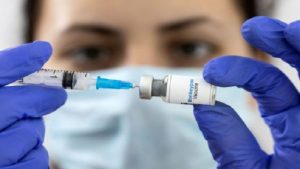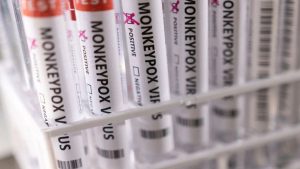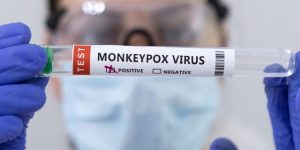Leading Stellenbosch based bio-informatics expert, Professor De Oliveira has been named in TIME Magazine’s 100 most influential persons of 2022.
De Oliveira says the world is experiencing an increase in epidemics, partly because of the way the earth has been mistreated and disrespected.
Alongside him on this prestigious list, is his past PhD student, Zimbabwean virologist and pioneer in HIV research, Doctor Sikhulile Moyo.
Brazilian born 46-year old Professor Tulio de Oliveira came to South Africa in 1997. A time he remembers vividly with the late President Nelson Mandela at the helm of the then young democracy.
Deep love for Africa
He says it was his mother’s deep love for Africa that let him move the family here. He himself was born in Mozambique. The bio-informatics whizz has led teams in the ground-breaking identification of at least two significant coronavirus variants, Beta in 2020 and Omicron in 2021.
“So we also identified the Beta variant. That’s the one that caused the high number of deaths end 2020. We also work with the WHO to help the UK identify the variant which became the Alpha variant. We identify the Omicron the first job was to make sure it wasn’t completely widespread in the country and we got hundreds of samples from hundreds of clinics. We ran very quickly to the genomics facility doing quick analysis. And then very fast communication to the government.” He adds.
In the video below, Prof Tulio Oliveira discusses new mutation of COVID-19 virus in SA
De Oliveira completed his PhD at the Nelson Mandela School of Medicine at the University of Kwa-Zulu-Natal. He was then awarded a prestigious fellowship at Oxford University, the European Commission Marie Curie Research Fellow. Currently, he is the head of the Centre for Epidemic Response and Innovation at Stellenbosch University’s and the University of Kwa-Zulu – Natal’s Research (UKZN) Innovation and Sequencing Platform, KRISP.
Science can be produced at a high level in Africa, by African scientists
Speaking to what he hopes the recognition will bring, he says it is critical for the global community to recognise that science can be produced at a high level in Africa, by African scientists. Being the only country outside of Europe and the United States of America (USA), South Africa (SA) had also a key contribution to the Nobel Symposium of Medicine Sweden, where more than 10% of representatives were South Africans.
He highlights, “It also helps to attract more funding to SA for international programmes. For me, what is important is to recognise that science can be done at a high level in SA and that now we have this pipeline with all these younger scientists moving to higher posts. That is very motivating.”
Critically, De Oliveria speaks to the relationship between the state of the planet and the increasing number of pandemics, saying currently Kenya is facing a big outbreak of the yellow fever virus.
“We have a Rift Valley virus in Burundi. We have Monkey pox, measles and polio, so unfortunately we are coming to an age of epidemics and pandemics. The reason for that is quite simple; we haven’t been treating our environment very well. More than ever viruses and bacteria are jumping from animals to humans more often and also we have big international trade and globalisation, which helps those kinds of epidemics to spread much quicker.” he reiterated.
De-stigmatise messaging around Monkeypox
De Oliveira and his team at Stellenbosch are working to de-stigmatise messaging around Monkey pox. An update from the World Health Organisation on June 4th notes that 7-hundred and 80 cases of the virus have been detected in 27 countries so far.
He adds that Monkey pox will not be classified as an epidemic from West Africa, that it will be given a proper scientific name to decrease the discrimination. He noted that as people had the South African variant they should not call it the West African variant that’s causing an epidemic in Europe and the global North.
The next few days will deal with the classification issues surrounding the epidemic.
When probed about what he wanted to be as a young boy, De Oliveira says he’s actually always wanted to be a scientist. Now he’s living proof that dreams really do come true.






